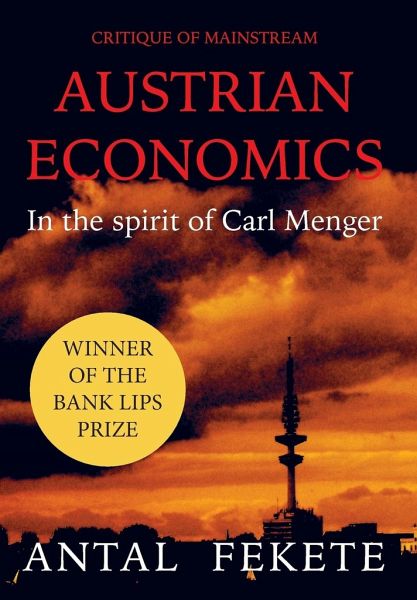
Critique of Mainstream Austrian Economics in the spirit of Carl Menger
Versandkostenfrei!
Versandfertig in über 4 Wochen
53,99 €
inkl. MwSt.

PAYBACK Punkte
27 °P sammeln!
In his Critique of Mainstream Austrian Economics, math professor Antal Fekete concisely formulates a number of arguments, not so much against Austrian Economics, but rather in favour of them. His critique ought to be interpreted as a way of fortifying and improving on Carl Menger and Ludwig von Mises and their concepts, heterodox as they were in Central Europe, before World War I. Some arguments take position against Mises who seemed locked into conclusions, inspired by unfortunate assumptions like the Quantity Theory of Money. Overcoming these limitations improves coherence in economic theory...
In his Critique of Mainstream Austrian Economics, math professor Antal Fekete concisely formulates a number of arguments, not so much against Austrian Economics, but rather in favour of them. His critique ought to be interpreted as a way of fortifying and improving on Carl Menger and Ludwig von Mises and their concepts, heterodox as they were in Central Europe, before World War I. Some arguments take position against Mises who seemed locked into conclusions, inspired by unfortunate assumptions like the Quantity Theory of Money. Overcoming these limitations improves coherence in economic theory. The title should not fool the reader, the arguments are crafted against those who took Menger and Mises and hammered their concepts forcefully into mainstream of economic science. Whatever their motives, their move stunted independent development of Austrian Economic thinking. Antal Fekete sets out to correct this unfortunate situation. He feels this work should be the beginning, not the end, of a renewal in Austrian economic thinking.


